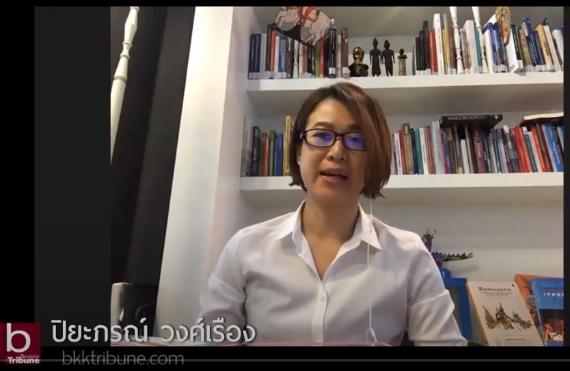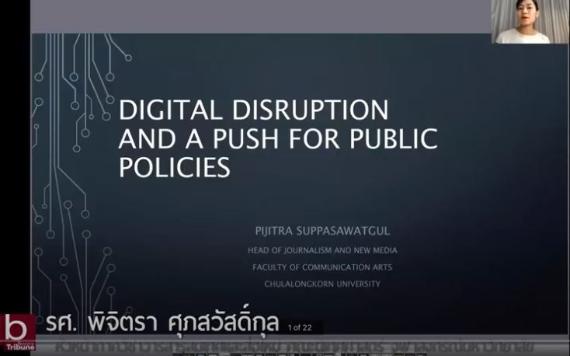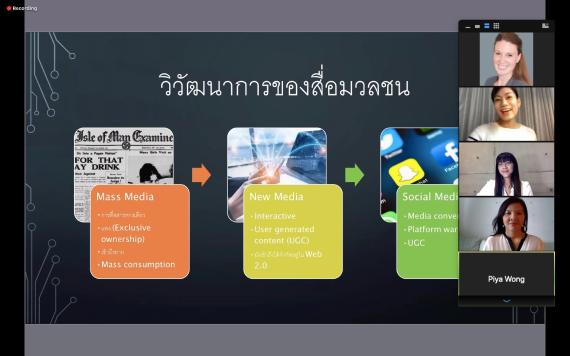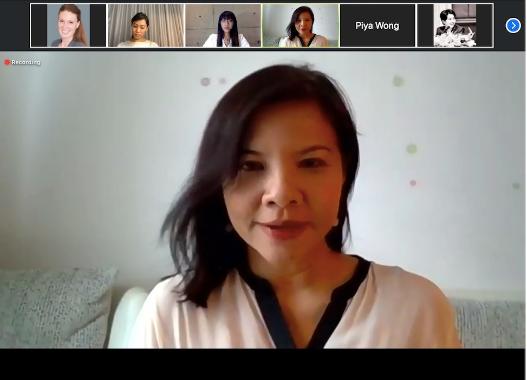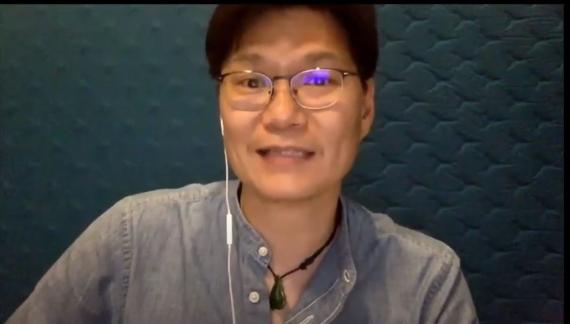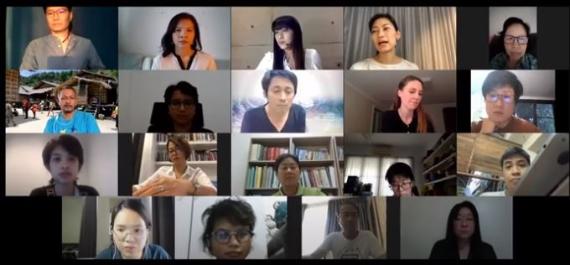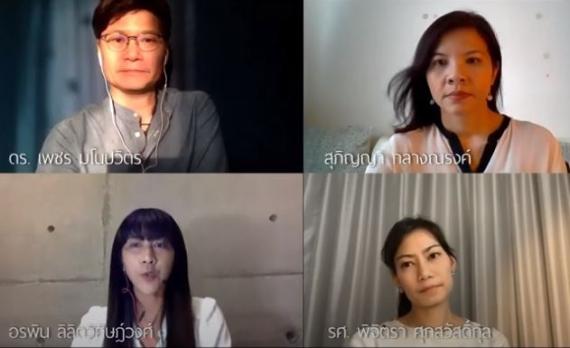The conference began with an overview of digital disruption trends and their impacts on the media by Associate Professor Pijitra Suppasawatgul from the Journalism and New Media Department, Faculty of Communication Arts, at Chulalongkorn University. The exposure to digital and new media has transformed the traditional media landscape from the former one-way to a new interactive way of communication, she explained. “Ordinary people” can now become media producers thanks to social media platforms. Also, new online platforms have led to some changes on consumer behaviour. This causes concerns regarding fake news, computer crimes, and the monopolistic use of data, whilst on the positive side, convenient and fast data sharing benefits the whole society with mobility and online connectivity. Assoc. Prof. Pijitra Suppasawatgul went on to say that a good outcome of data sharing is for example that when high levels of air pollution hit Thailand over the last two years, data collection showed that a large number of people expressed their exasperation and asked for solutions on social media. This pressure triggered the authorities to take some action. This example led the media expert to ask the main question of the conference: Can the civil society be powerful enough to take advantage of new media tools and sustainably influence the policymaking process?
After this presentation, Dr. Petch Manopawitr, co-founder of ReReef and former deputy director of IUCN SE Asia Group, as well as Ms. Supinya Klangnarong, co-founder of Cofact.org and former commissioner of NBTC, joined the online panel. Ms. Orapin Lilitvisitwong, the editor of Thai PBS’ website and Decode, moderated the discussion. One of the consensuses was that given the fact that new media allow people to have the power to access and share information, not only journalists but also academics and the civil society have made the most of online and social media. The experts also agreed on the fact that massive amounts of scattered data produce echo chambers and have made negotiations in the policymaking process more challenging. As a result, triggers are required to amplify certain issues and allow them to go viral. However, when communicating to grab public attention for policymaking, media should not only try to “hit the heart” of the people, with quality content, but also try to include a large audience in the discussion so every citizen can access the information and express an opinion. To profit from the disruption deliberately, efficient data management or data visualization systems – for trends regarding natural resource usage or traceability for example – can be considered good tools to increase transparency and public engagement. Especially when the media report data analysis to the public they can influence the policymaking process, so the experts. Besides, to counter news outlets spreading misleading information, serious media should have an ethical strategy and put the emphasis on fact-checking.
The panel as well as many participants found that the society still puts high expectations on traditional media to engage in the policymaking process since these media are more credible and can access policymakers more easily than new media, and this even if the traditional media bear heavier cost to keep running. Traditional media still maintain their efficient role by spotlighting opinions among the civil society while the social media are more scattered and less focussed on specific messages. To make a lasting impact on public policy, it is important to have a proper strategy and build collaboration, the panellists agreed. Even if the digital disruption hit them drastically, conventional media should enhance their resilience by focussing on the quality of contents, finding new partners, and reshaping their business model. In Thailand, there are various challenges that need to be overcome to reach these goals, for e.g. increasing access to media fund, improving media skills and literacy of the people, and reducing the cost for high-speed internet. Good collaboration and strategic partnerships between traditional and new media are therefore essential to help solve social problems and push for sound public policies.
Topics
From research to business: Innovation transfer in Germany
Global Health as a Strategic Imperative – Health in the context of security and peace
Pragmatically reducing bureaucracy – lowering construction costs
Return to stability and pragmatism
"Wir brauchen für den Wohnungsmarkt einen Befreiungsschlag"













